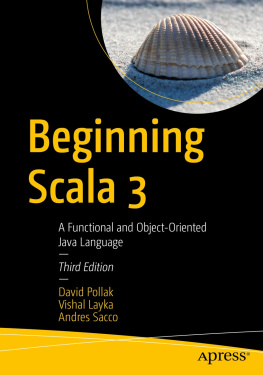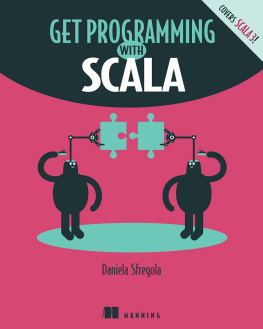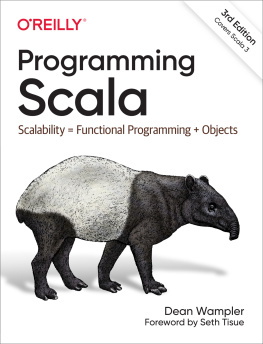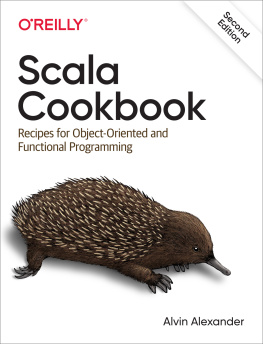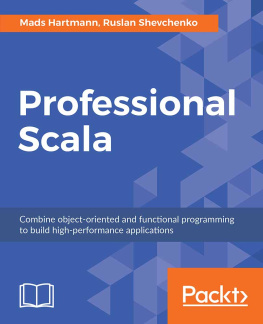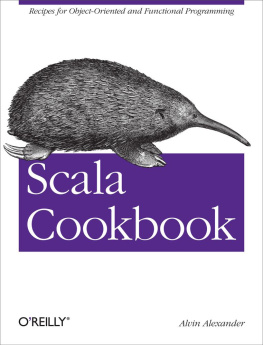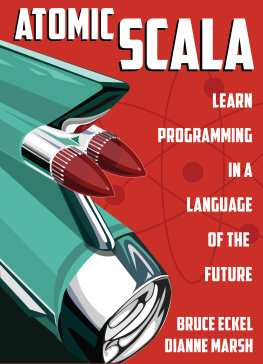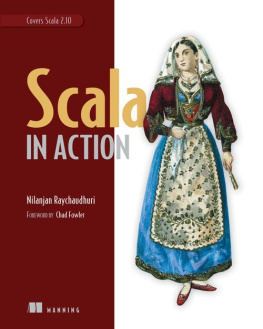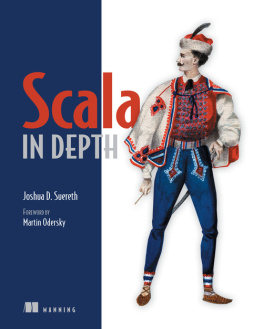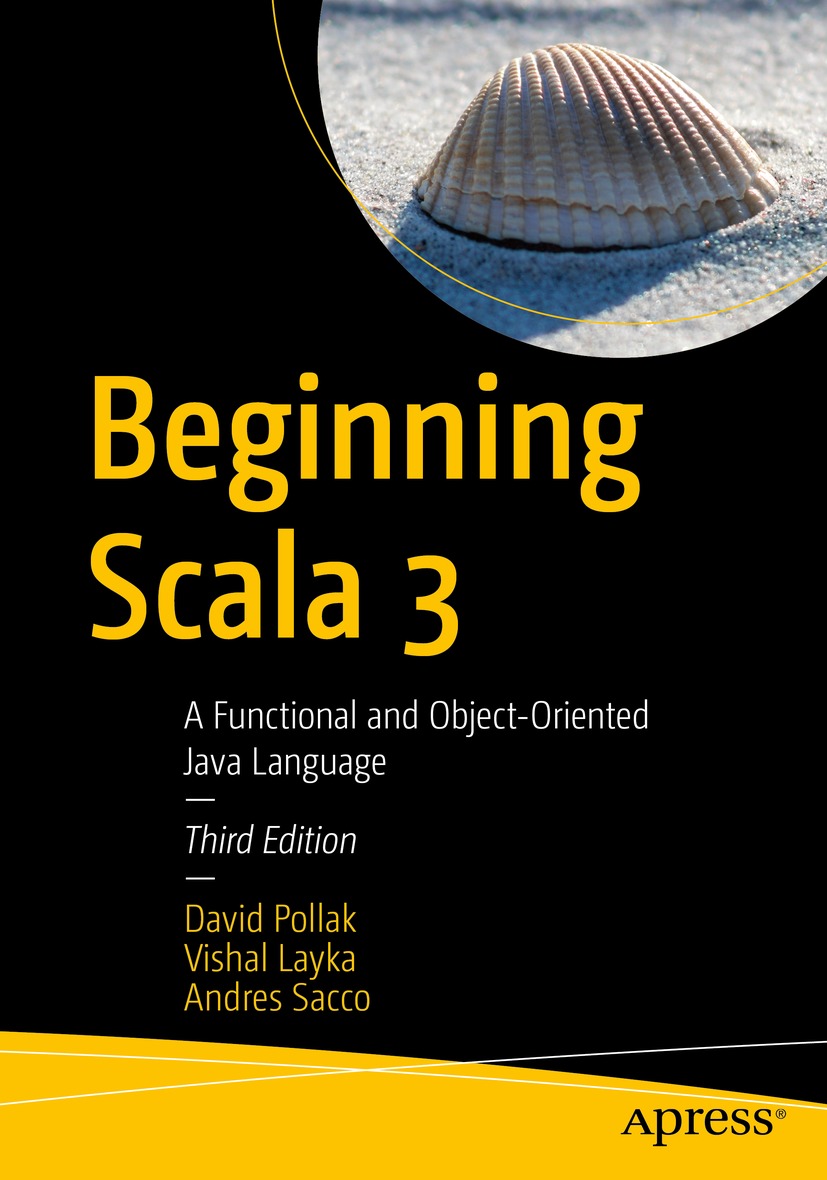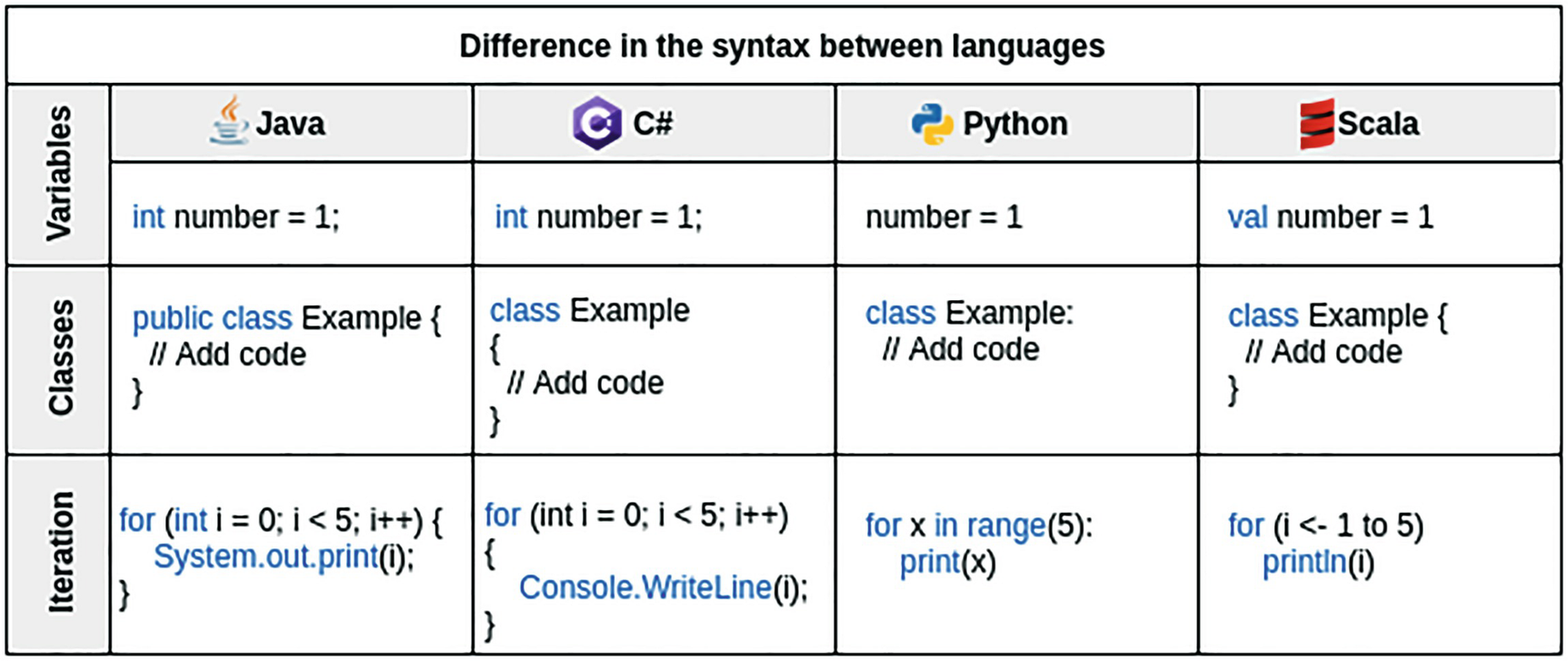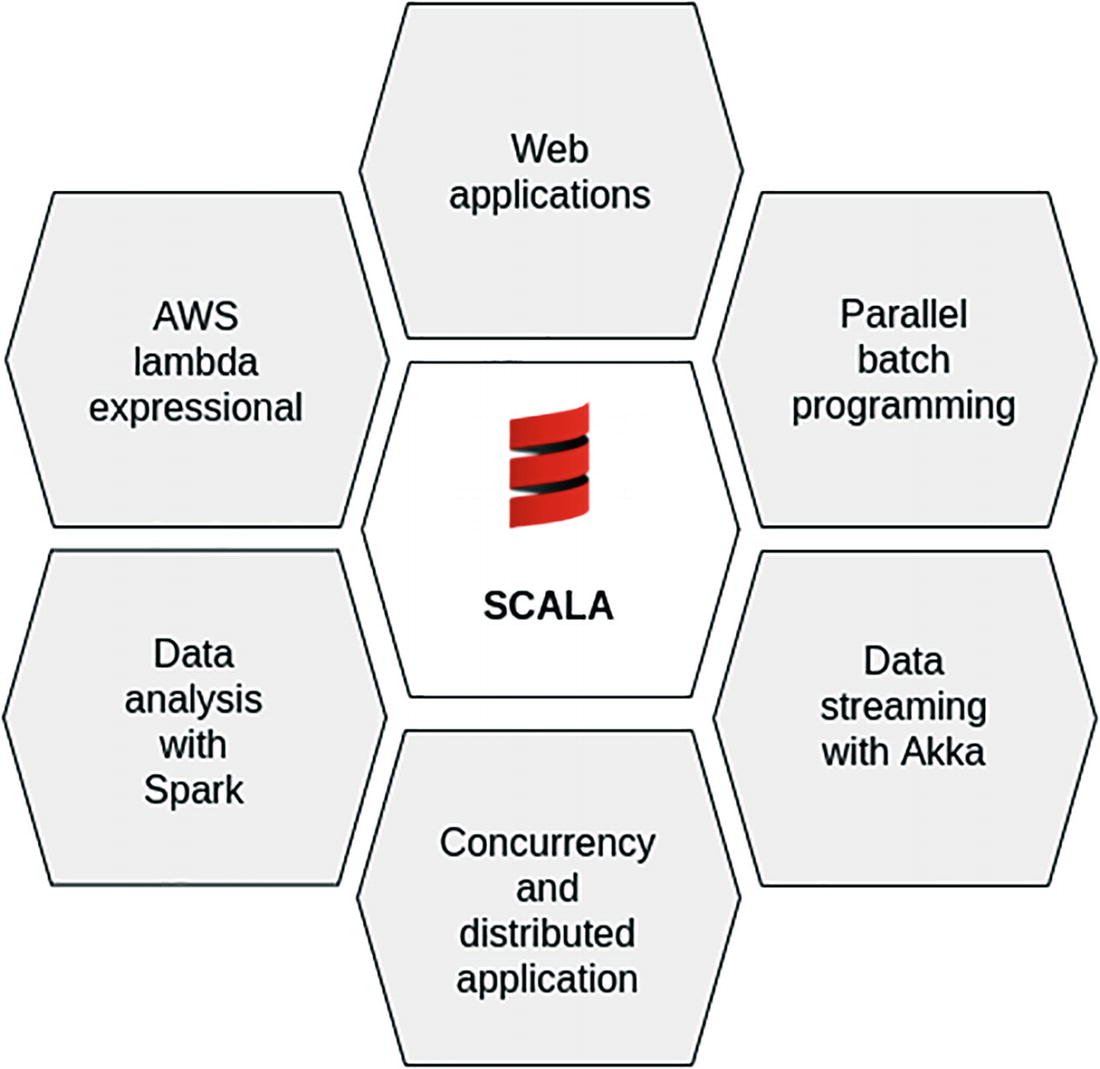David Pollak - Beginning Scala 3: A Functional and Object-Oriented Java Language
Here you can read online David Pollak - Beginning Scala 3: A Functional and Object-Oriented Java Language full text of the book (entire story) in english for free. Download pdf and epub, get meaning, cover and reviews about this ebook. year: 2022, publisher: Apress, genre: Computer. Description of the work, (preface) as well as reviews are available. Best literature library LitArk.com created for fans of good reading and offers a wide selection of genres:
Romance novel
Science fiction
Adventure
Detective
Science
History
Home and family
Prose
Art
Politics
Computer
Non-fiction
Religion
Business
Children
Humor
Choose a favorite category and find really read worthwhile books. Enjoy immersion in the world of imagination, feel the emotions of the characters or learn something new for yourself, make an fascinating discovery.
- Book:Beginning Scala 3: A Functional and Object-Oriented Java Language
- Author:
- Publisher:Apress
- Genre:
- Year:2022
- Rating:4 / 5
- Favourites:Add to favourites
- Your mark:
Beginning Scala 3: A Functional and Object-Oriented Java Language: summary, description and annotation
We offer to read an annotation, description, summary or preface (depends on what the author of the book "Beginning Scala 3: A Functional and Object-Oriented Java Language" wrote himself). If you haven't found the necessary information about the book — write in the comments, we will try to find it.
Learn the latest version of Scala through simple, practical examples. This book introduces you to the Scala programming language, its object-oriented and functional programming characteristics, and then guides you through Scala constructs and libraries that allow you to assemble small components into high-performance, scalable systems.
Beginning Scala 3 explores new Scala 3 language features such as Top-level declarations, Creator applications, Extension methods to add extra functionality to existing types, and Enums. You will also learn new ways to manipulate types via Union types, intersection, literal, and opaque type aliases. Additionally, youll see how Implicits are replaced by given and using clauses.
After reading this book, you will understand why Scala is judiciously used for critical business applications by leading companies such as Twitter, LinkedIn, Foursquare, the Guardian, Morgan Stanley, Credit Suisse, UBS, and HSBC and you will be able to use it in your own projects.
What You Will Learn
- Get started with Scala 3 or Scala language programming in general
- Understand how to utilitze OOP in Scala
- Perform functional programming in Scala
- Master the use of Scala collections, traits and implicits
- Leverage Java and Scala interopability
- Employ Scala for DSL programming
- Use patterns and best practices in Scala
Who This Book Is For
Those with a background in Java and/or Kotlin who are new to Scala. This book is also for those with some prior Scala experience who want to learn Scala version 3.
David Pollak: author's other books
Who wrote Beginning Scala 3: A Functional and Object-Oriented Java Language? Find out the surname, the name of the author of the book and a list of all author's works by series.

